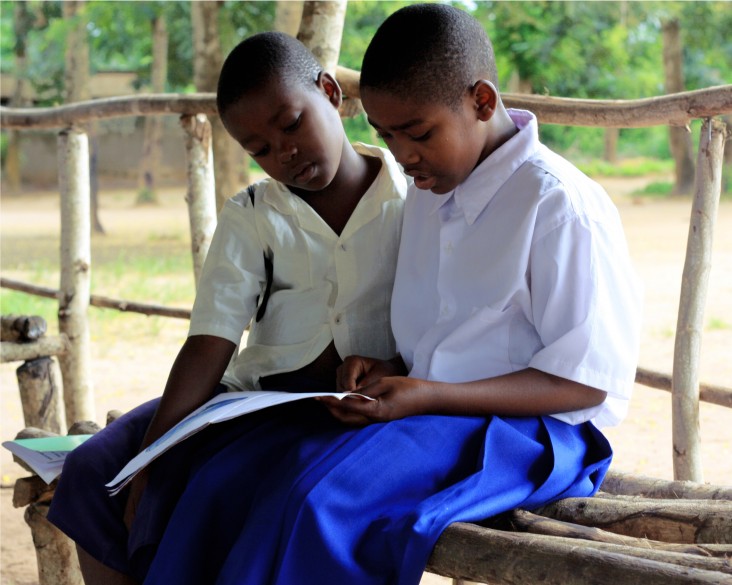Speeches Shim

Although Tanzania has made progress in access and equity in education, there are few corresponding advances in educational quality, particularly in the early grades. Reading skills remain a challenge among Tanzanian students—only 5.4% of students in the early grades read with comprehension.
Complicating the matter is a lack of available resources for teachers and students: 66 percent of teachers self-report that they do not have adequate materials in their classrooms for teaching reading, writing and arithmetic (the 3Rs). Moreover, most students (89 percent) attend school in classrooms that do not have any supplementary readers for them to read during school hours.
USAID’s education portfolio supports improving student outcomes in reading in Swahili, the local language, for grades one through four through its Tusome Pamoja activity. To achieve this objective, USAID is working at the national, regional, district, and ward levels to build the capacity of Tanzanian government institutions on several policy and institutional issues. This means (1) working with key stakeholders on teacher guides, student materials, and the training to use them; (2) building coaching and mentoring support for teachers; and (3) collecting data that will enable decision-making based on sound evidence and research.
Building on this model, USAID is implementing a new math and inclusion activity to improve arithmetic skills and increase access to learning for children with disabilities in early grades.
While primary school enrollment among girls and boys is nearly equivalent, only one in three girls who start secondary school will finish their lower secondary education. Causes of low secondary enrollment and retention among girls include economic hardship, early marriage and/or teen pregnancy, and school-related gender-based violence.
USAID supports increasing adolescent girls’ enrollment and retention in secondary school in Tanzania through its Waache Wasome activity. The activity works closely with local government authorities, school and community leaders, teachers, and parents to bring a holistic package of interventions to public secondary schools in target districts and communities. These interventions are designed to empower girls to create and achieve goals for their future and address the social norms and economic barriers that constrain their ability to remain and excel in school.
Challenges
- Large student-to-teacher ratios
- Retaining teachers, especially in rural areas
- Retention rates for girls due to poverty, early pregnancies and marriages, and school related gender-based violence
- Quality of basic education is low: Only 5.4 percent of standard two students read with grade-level comprehension
Impact
- All grade one and two pupils in Tusome Pamoja target regions have received new learning materials: approximately 1 million supplementary and decodable readers have been distributed.
- All grade one and two teachers in the five Tusome Pamoja regions (over 10,000) have received training on evidence-based early grade reading instruction, improving their knowledge and skills as educators.
- Waache Wasome’s interventions have led to 69 percent of female beneficiaries reporting a greater sense of empowerment, shifting the belief that males and females should have equal access to social, economic, and political resources and opportunities.
- A Dropout Early Warning System implemented by Waache Wasome identified 537 secondary school students (224 girls) at high risk of dropping out. Students receive counselling and guidance. Teachers involve parents/caregivers to ensure the students receive support in school and at home so that they do not drop out.
- Over 280 savings groups targeting mothers and caregivers of adolescent girls have been formed, with a total membership over 6,400. The groups have cumulatively saved nearly TZS1 billion ($435,000) and have given out loans to members of almost TZS 1.5 billion ($650,000). The groups have used TZS 69.5 million ($30,000) from their Education Funds to support nearly 1,000 vulnerable girls and over 700 vulnerable boys in their communities so they can continue with their schooling.
RELATED FACT SHEETS
Hesabu na Elimu Jumuishi (“Arithmetic and Inclusive Education”)
Waache Wasome (Let Them Learn)
STORIES
Here's How Phonics Training is Transforming Tanzania's Primary Schools
We Are the Future: Empowering Girls in Tanzania to Realize Their Dreams


Comment
Make a general inquiry or suggest an improvement.